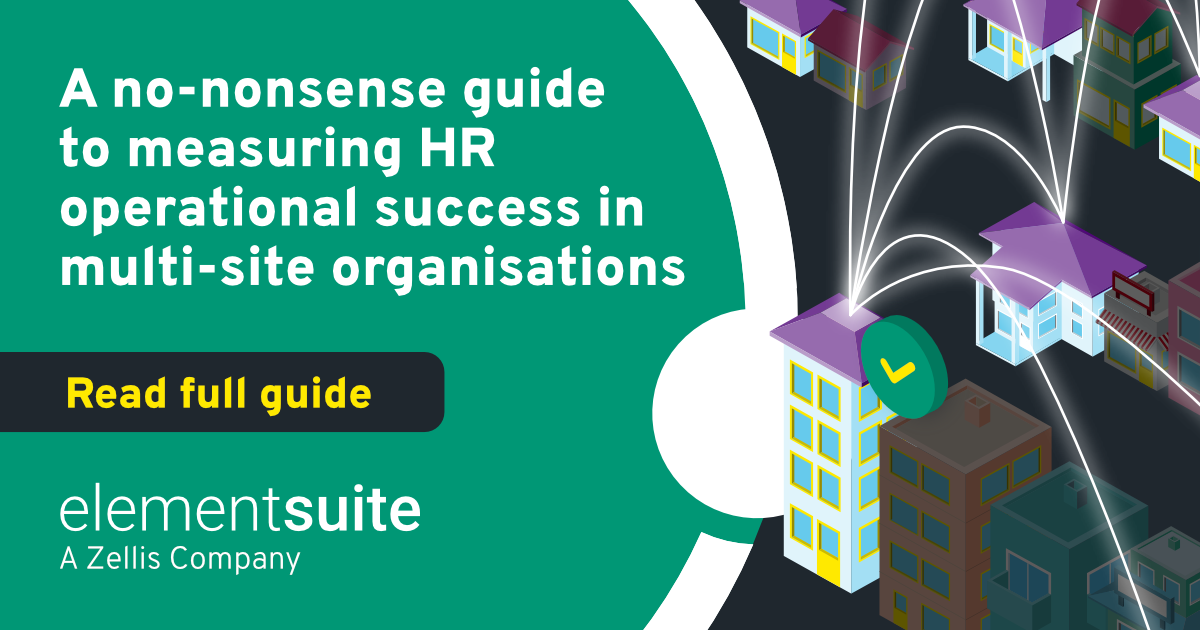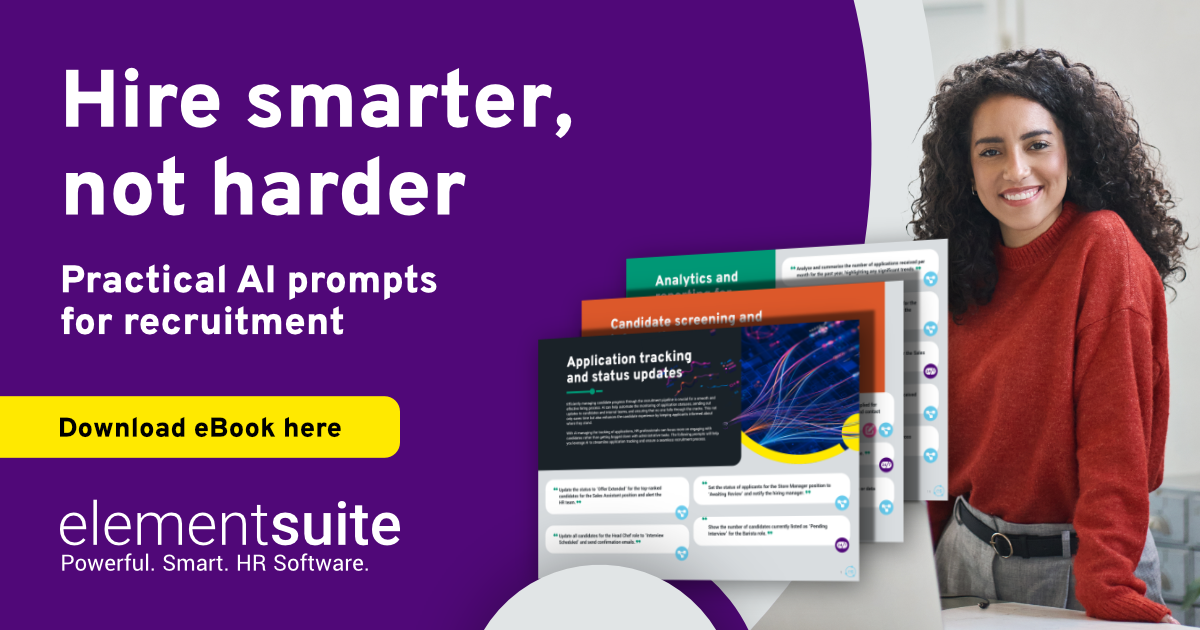Introduction to hotel HR management
Human resources play a critical role in the hotel industry. Handling tasks ranging from upholding organisational policies and ensuring employee wellness to leading strategic decision-making for maximised operational efficiency.
In the hospitality sector, where staff are working 24 hours a day, for 365 days a year, HR processes need to be more robust than ever in providing employees with the support required for smooth processes.
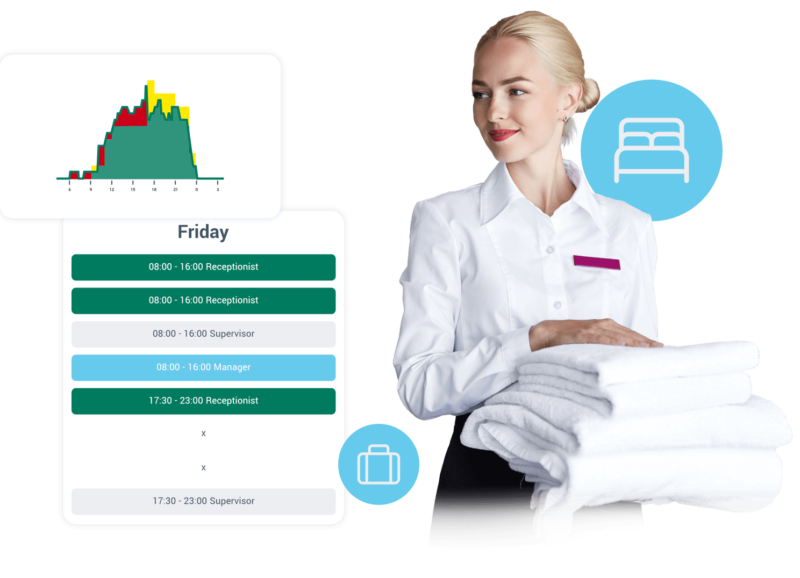
The role and responsibilities of a hotel HR manager
HR managers within the hotel industry have a wide-ranging list of roles and responsibilities, including:
- Recruiting and onboarding:
- Designing and managing hiring plans based on seasonal fluctuations and engaging both candidates and employees from the outset.
- Workforce planning:
- Overseeing staff working schedules, including compliance, absence management, and more.
Learn more about why Travelodge chose elementsuite to help forecast staffing needs across 580 UK hotels
- Engaging employees:
- As noted in hospitality.net, ‘the hospitality industry has the highest turnover rate in the UK, with an average of 37.6 per cent of employees leaving their jobs each year’. HR managers play a critical role in maintaining strong communication, transparency and support for employees around the clock to keep retention at an all-time-high.
- Performance management
- Managing employee performance is essential in the hotel industry. In a business where quality of service is a priority, maintaining customer satisfaction through supporting staff performance initiatives is vital.
- Learning and development:
- Providing opportunities for staff growth and development within the organisation would not only boost employee satisfaction and therefore improve productivity, but also support employee retention in the long run.
- Payroll:
- In the hotel industry, accuracy in payroll is essential. By maintaining trust between employees and management through smooth payroll processes, staff retention would not only be positively impacted, but overall financial stability across the organisation can be enhanced.
Yep, that’s a whole lot of plates to spin… So here are some tips for effective staff management in the hotel industry.
Effective staff management tips for the hotel industry
Embracing digital transformation
As a service driven industry, hotels rely heavily on their people to deliver customer service to guests, hotel staff work a myriad of shifts and fulfil hundreds of different roles.
- Staff scheduling
- Real-time communication across the operation
- Easy shift swaps
- Automatically match peak demand
- Robust compliance for WTD, health and safety and company rules
- Correct payroll
- Empowering staff with employee self-service
- Real-time data that drives smarter decisions
Now is the perfect time to leverage digital and mobile HR tools in the sector. Over 80% of hotel staff don’t have a company email, but 98% of younger workers in the UK own a smartphone, making mobile connectivity with hotel staff through workplace tech a key HR trend for hoteliers.
Hotels can seize this opportunity to embrace digital transformation as a way of delivering improved performance and a more agile and resilient business. By digitising time-consuming, inefficient and expensive manual and paper-based processes, hotels can spend time on more transformational tasks. This also builds greater security around critical documents which can be accessed securely via mobile devices with authentication and authorisation. Automation of workflows and processes releases staff to focus on guests and customer service, driving up revenue per guest, revenue per room. Digitise, automate and optimise are today’s HR trends for hoteliers.
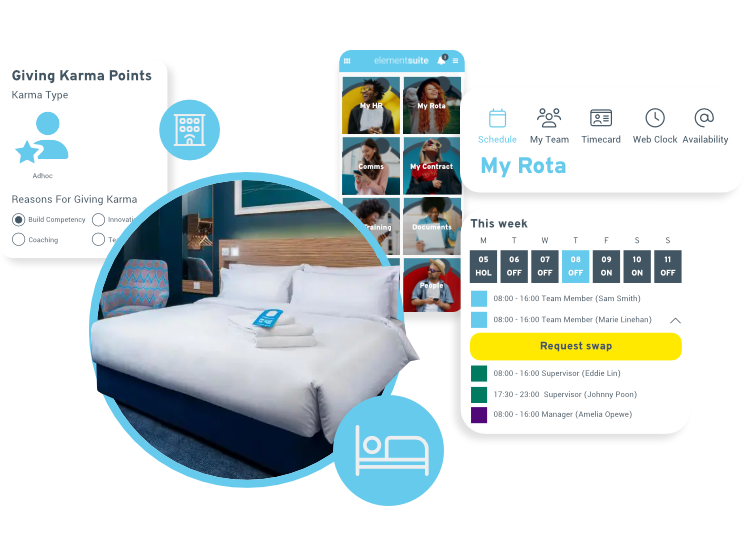
Optimising your hotel workforce, to deliver great experience relies on a robust approach to workforce management. Getting the right people, in the right place, with the right training means you can delight your guests and capitalise on the opportunities. In order for your staff to meet and exceed guest expectations, they need to be able to react quickly, have the tools to plan and be proactive. Which means your people have the right knowledge at their fingertips. Attempting to deliver this using manual processes is a real headache and very time consuming. Workforce management technology when used the right way, is essential to delivering great experiences and more.
Digital workforce management solutions help hoteliers streamline processes, increase productivity and reduce costs through improved scheduling and smarter optimisation of their people and their skills. Digital tools are perfect for staff who are working shifts, managing. different rotas and who often don’t have a work email address. Everything can be accessed via a mobile device.
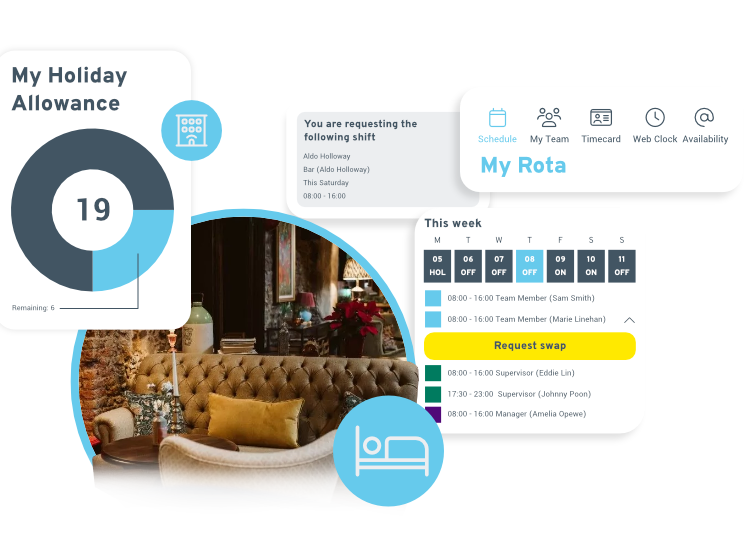
Digital workforce management solutions will reduce your HR department and operational teams operating costs, while increasing the efficiency of the hotel.
60% reduction in time spent on scheduling – managing schedules, shift swaps, skills and legal WTD is very time consuming. A digital approach will reduce time spent by 60% or more
Eliminate human error – reduce the chance of human error in staff scheduling with automation
Avoid over scheduling – with manual approaches, hotels often over-schedule on shifts to compensate, which creates additional costs
Efficient scheduling
Let’s face it, even the smallest staff scheduling error can increase labour costs for hotels. Its fair to say that creating employee rotas is rarely seen as an enjoyable task. It’s a juggling act that requires dexterity, balancing the business needs with available trained resources, staying compliant and delivering profitable customer service.
Whether you’re HR, Operations or Finance, there’s a lot of complexity involved in getting this right. Problems with scheduling are constantly quoted as one of the top reason’s employees quit. In fact, there are few things that cause so many headaches for hotels.
Without the right information to hand and the right tools, staff scheduling is a time-consuming logistical nightmare. Before you can rota in a member of the team you have to consider some of the following: –
- HMRC legislation
- Right to Work and Working Time Directive
- Staff leave, time off and other absences
- Guest to staff ratio or staff to room ratio for your location
- Customer service and seasonal demands
- Shift patterns – full-time, part-time, flexible or split
- Hours worked – not exceeding maximum per shift or consecutive shifts
- Scheduling staff who are trained and qualified for shift roles
- Close – open (clopen)
- Security
- Budgets
- Overtime
- Ensuring that employees are paid the correct amount for the work that they do
- Inequal shift distribution – relying on the same few
Do some or all of those sound familiar? Well, you are not alone – here are a few pitfalls that must be avoided when considering these factors.
- Excel hell
This is the number one pitfall to avoid. Studies show that 90% of spreadsheets contain errors and once you have an error you perpetuate it. Excel is great, but not for complex scheduling. If this is your go-to, you should start looking for HR workforce management software for automated rota management to help you make smart and faster scheduling decisions. This may feel like a cost you didn’t expect, but in the long-term you will be saving the business considerably through increased efficiencies, better staff utilisation, lower staff turnover, and cost savings.
Seems obvious, but so often employee wage packets come up short because their extra shifts have not been included. Nothing is going to hit staff retention issues faster than failing to get this right. Staff also expect to see consistent, accurate pay for the varying rates of work they have fulfilled. If you are not using automation for check-in, verifying shifts worked, this can add a lag in calculation for payroll runs. Automation is the only way to go, staff can check its all right on their mobile, catching any issues before they happen.
3. Staff shortages
Seems obvious, but if you don’t have the right people, in the right place at the right time, no-one is happy: your guests won’t be happy and neither will your staff.
The obvious solution is to call in back-up staff, cancel days off, but that is not getting to the core of your problem. It could be
- you don’t have enough employees to begin with
- you do have enough staff, but they are not trained to fulfil multiple roles in a single shift and therefore not being fully utilised.
- you have enough employees, but you don’t schedule correctly
The solution could be a combination of all three, but if you are able to train your staff to fulfil multiple roles in a single shift, you can improve staff utilisation. If you then schedule correctly and efficiently you will achieve more with the same number of staff, but they will also be happier.
4. Over-scheduling staff
Staff need downtime, gaps between shifts and breaks. If you don’t give them a break, to refresh, recharge and sleep you can’t expect them to be 100% efficient. While most employees are covered by working time directive and other health and safety regulations, you need to make sure you factor this into your scheduling.
If you’re doing this manually it’s easy to mistakenly schedule someone in for a 5 am start on one day when you only finished the previous shift at 11 pm. Although many staff might be requesting additional shifts, you need to make sure you do not over-schedule them and cause burn-out. This is where digital tools really come into their own, set-up to automatically handle all these nuances.
5. Flexible scheduling errors
Hotel schedules should never be written in stone, you need to be flexible and be able to make adjustments at a moment’s notice. So often managers say no to changes because their schedule is so inflexible, but the truth is that it’s more related to the amount of work and time needed to make a small adjustment or accommodate a shift swap.
Without the 100% visibility of your schedules and your people’s skills and availability, you cannot see the impact one change can make. One dimensional paper or excel planning will restrict your ability to be flexible. That means both for the business and your staff. Shift swaps can really help the personal lives of staff, so make it easy to achieve that. Automation tools allow staff to self-drive shift-swaps, within the parameters of your business model, as well as push out notifications on any changes made to keep everyone in the loop.
6. Outdated scheduling methods
Holding onto outdated scheduling methods and relying on excel a familiar pitfall. Every minute that a manager spends on employee scheduling is time that could be better spent elsewhere. This is a chronic problem, which is compounded when last minute changes and adjustments are needed. If your methods are inflexible and time consuming, they are naturally prone to flaws. Errors with scheduling frustrate staff, but also costs the business money.
Powerful employee scheduling allows managers to quickly build, edit and update schedules. It really doesn’t need to be onerous.
Learn more about why Centre Island Hotels chose elementsuite as their workforce management software of choice to help schedule supply with forecasted demand
7. Communication and notification
Not having the right system in place to notify employees of changes to their scheduling is a major pitfall. Having investing time in changes, whatever the reason, staff need to be notified quickly and easily. You simply can’t phone everyone to let them know about changes, you need to use scheduling software that will automate this communication process, allowing staff to check at any time what their schedule is and notify them of changes. They can also see who else is working on their shift.
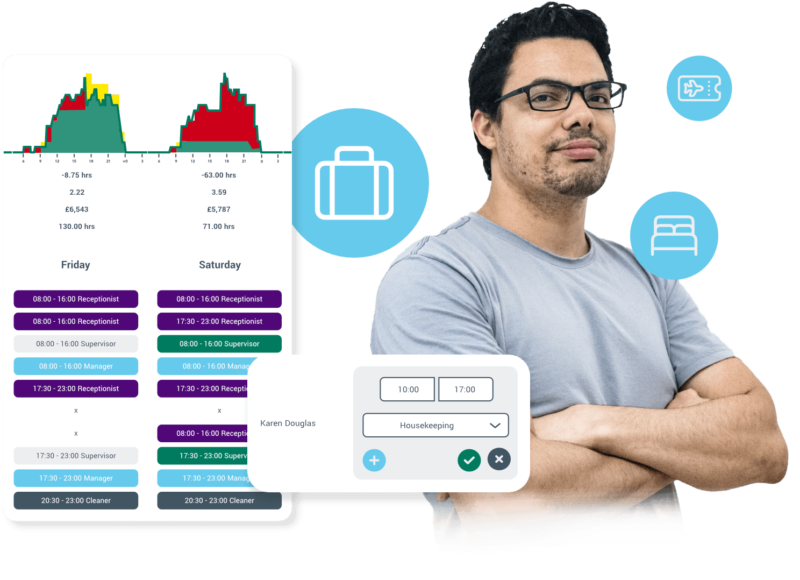
Performance recognition
A key component of delivering high quality service is your people and human resource management systems. In a service industry, its HR that helps create the organisations competitive advantage.
Some of the greatest ‘wow’ moments for guests aren’t easy to plan, instead its your staff who will, proactively spot and address opportunities on a day-to-day basis. Which means you need to create a culture and develop these skills and competencies:
Proactive – seeking out opportunities to delight guests
Enable – providing support systems and processes that enable staff to act and be proactive
Training – go beyond customer service, into forward thinking and improvisation
Protocols – a great starting point to support improvisation and creativity and the ability to think on their feet
Take a customer first approach – instil a culture and attitude that puts the customer first
Research by PWC showed that 86% of guests are ready to pay more for great customer experience, that’s good news for hotels who can deliver. Get it right and guests will come back, and tell their friends.
The employee experience is the cornerstone of enabling them to deliver exceptional service. Great employee experience can be enabled with the right technology, to support human interaction that are seamless and unobtrusive.
Clear communication
Hotel workers are widely dispersed around the property, working a variety of shift patterns, often with little personal interaction with HR and operations. As a result, hotels need a way to stay connected to their people, as it can often take over five minutes to find a member of staff.
Hotels need to easily connect their entire workforce, whatever their role, location and function. How do you keep employees connected? The answer is a single, unified hub for information, collaboration, training, rotas, personal information, and communication. This also includes the lighter side of being connected… social.
Digital HR process make this possible, and it means hotels can achieve 100% connectivity across a dispersed workforce.
Using elementsuite’s social media-like communication platform, for instance, a HR manager can simply send a message informing their staff of the latest food and hygiene safety standards update.
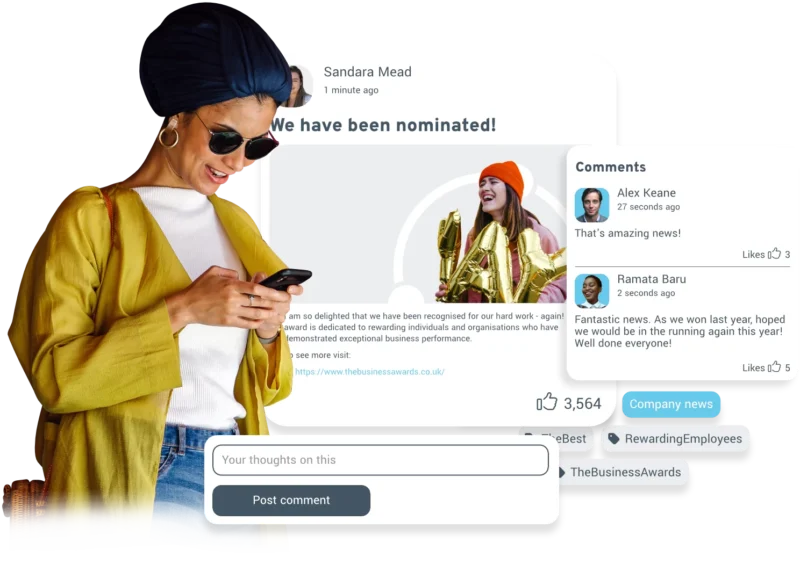
Structured training programmes
Not only does a well-trained and motivated workforce help provide high quality service to hotel guests, but also contributes to a positive and productive environment across the hotel, supporting staff retention through improved staff morale.
An effective hotel staff training programme must have a strongly defined structure in order to be effective in supporting continuous development, enabling both transparency and clarity in training provision. The training programme can include:
- Traditional classroom sessions
- On-the-job training
- Online learning
- Mentorship initiatives
Accurate pay
It goes without say that paying staff correctly is crucial. But how can consistent payroll accuracy be achieved?
- Using the right technology
- Paper spreadsheets are not only tricky and time-consuming to plan and manage, but also leave room for human error – especially when it comes to employee shift-swapping, those paper scribbles on the wall can quickly get messy. With proper time & attendance tracking and payroll software, hours can be accurately tracked and validated even before the pay run takes place, minimising discrepancies that need to be addressed after pay day. Let’s face it, no one wants to hear “my hours are wrong again!”
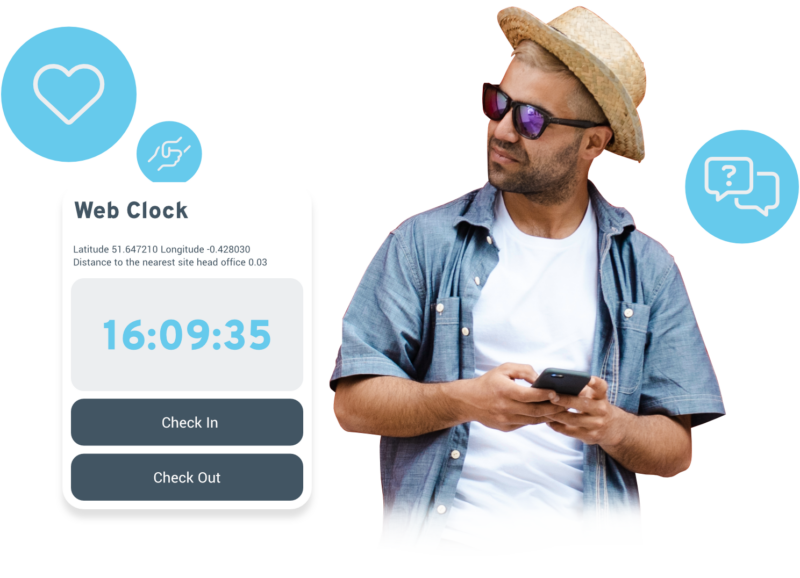
- Stay up-to-date
- The rules around payroll change frequently, and it’s crucial to stay in the loop. This can include changes to:
- Statutory Sick Pay (SSP)
- Holiday entitlement
- Tax liabilities
- Employment rights
- The rules around payroll change frequently, and it’s crucial to stay in the loop. This can include changes to:
With elementsuite’s payroll module, all overtime is approved and sent to payroll by the line manager at the end of each shift. And with elementsuite’s geo-tagging feature, each shift’s actual time and location are recorded and stored automatically, saving them from any possible future disputes.
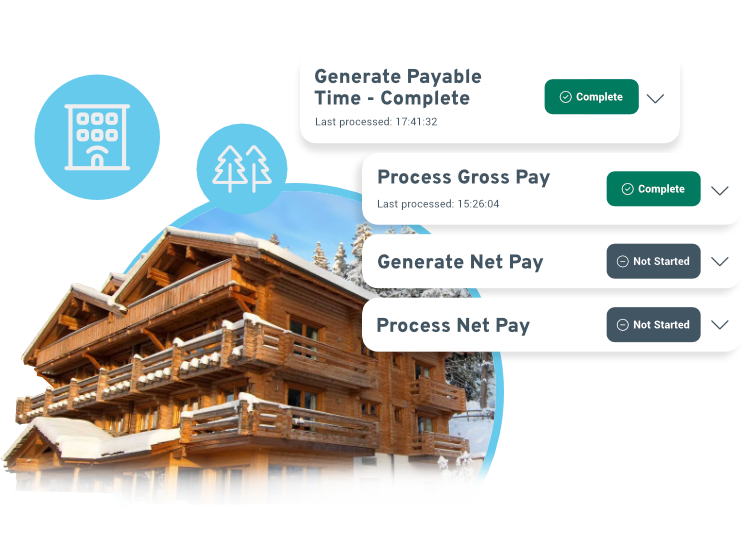
Legal compliance
Keeping your people and guests safe is going to remain a priority for hotels for the foreseeable future. And that means a robust approach that can be flexible to changes, often with little notice. Technology will help and guide health and safety strategies in order to build and maintain a safe workplace. Changes to rules and regulations mean that hotels need to implement protocols at speed. Hotels need to construct safety into workplace operations and culture to keep teams engaged and productive without having to worry about their own health and safety at work.
Tools for real-time communication and easy to access information on health and safety, training and FAQ’s streamlines the process and gives staff confidence around health and wellbeing for staff.
A complete HR solution for hotels
Created with the unique demands of the hotel industry in mind, elementsuite is a one-stop HR and Workforce Management solution that makes your world of work simpler and more efficient. From recruitment to performance management and auto-scheduling to payroll, you can handle all your processes in one place.
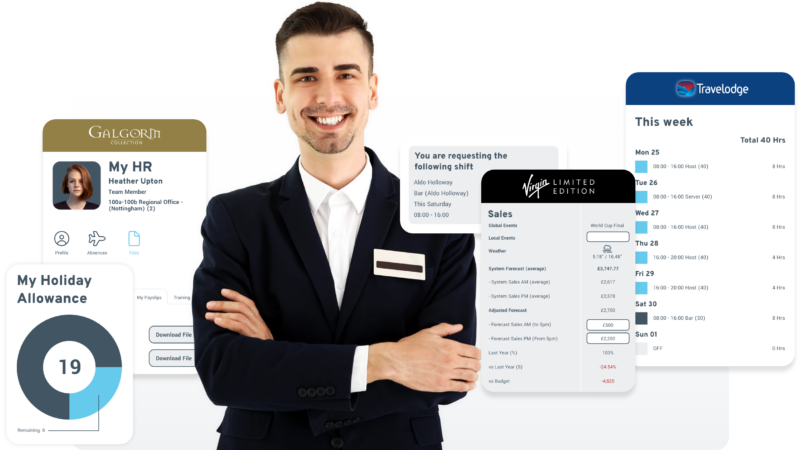
Want to see elementsuite in action to optimise operational efficiency at your hotel? Book a free live demo today.


